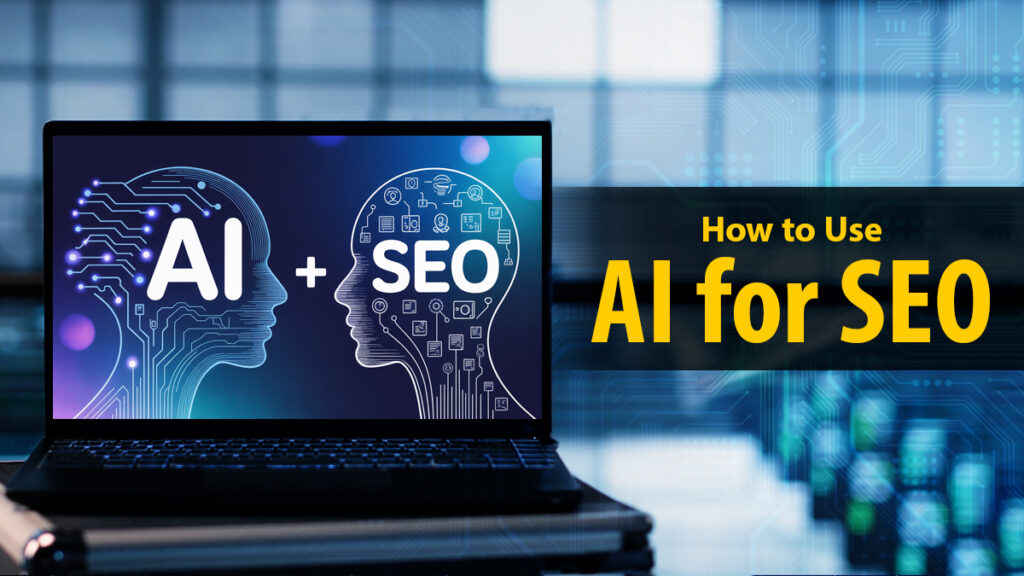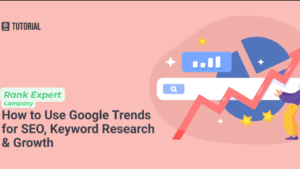In today’s hyper-competitive digital world, artificial intelligence (AI) is revolutionizing the way marketers approach search engine optimization (SEO). What once took hours or days can now be automated and streamlined with precision and speed. If you’re looking to enhance your SEO strategies and save time, here are 10 powerful ways to use AI for SEO to streamline your work.
✅ Pro Tip: These AI SEO methods are not just efficient—they also align with Google’s best practices for high-quality, helpful, and relevant content.
1. AI-Powered Keyword Research
AI tools for SEO like Semrush, Ahrefs, Surfer SEO, and ChatGPT can analyze millions of keywords in seconds, identifying search intent, keyword difficulty, and long-tail keyword opportunities. Instead of manually sifting through keyword lists, let AI suggest relevant LSI keywords, search trends, and gaps in your niche.
2. Content Creation & Optimization
AI writing assistants like ChatGPT, Jasper, and Frase can help you generate high-quality blog posts, product descriptions, FAQs, and even meta tags. These tools leverage natural language processing (NLP) to ensure your content is engaging, informative, and aligned with search intent.
⚡ Make sure to review and edit AI-generated content to maintain originality and human touch—a key Google guideline.
3. Content Gap Analysis
With AI, you can automatically compare your content to that of top-ranking competitors. Tools like MarketMuse and Surfer SEO highlight missing topics or subtopics you should include to make your page more comprehensive.
Benefits:
- Identify what your competitors rank for
- Fill in topic gaps
- Improve topical authority
4. On-Page SEO Automation
AI tools can analyze your pages for on-page SEO elements such as:
- Meta titles and descriptions
- Header structure (H1, H2s)
- Keyword density
- Internal linking
Platforms like PageOptimizer Pro or Clearscope use AI to recommend exact improvements to match Google’s ranking signals.
5. AI-Powered SEO Audits
Manual SEO audits are time-consuming. AI-powered platforms like Screaming Frog with AI integration, Semrush Site Audit, or SEOptimer can crawl your website and instantly flag:
- Broken links
- Slow-loading pages
- Duplicate content
- Schema markup issues
You’ll receive actionable insights in minutes, helping you fix SEO issues faster.
6. Voice Search Optimization
AI is essential for optimizing your site for voice search queries, which tend to be longer and more conversational. Using NLP and AI tools, you can craft content that answers questions clearly and succinctly, improving your chances of being featured in voice snippets or Google’s AI Overviews.
7. User Intent Prediction
Understanding search intent is crucial for SEO success. AI algorithms can analyze user behavior, query patterns, and bounce rates to help you tailor content that directly meets user needs.
For example, AI can suggest whether a keyword is informational, navigational, or transactional—ensuring your content matches searcher expectations.
8. Link Building with AI Assistance
AI tools can:
- Identify authoritative backlink opportunities
- Automate outreach email generation
- Analyze anchor text diversity
- Detect and disavow spammy backlinks
Using platforms like Postaga, BuzzStream, or Respona can significantly improve your backlink acquisition efforts, all while reducing manual tasks.
9. AI for Content Personalization
Search engines prioritize user experience. AI can help deliver personalized SEO content by analyzing behavior, location, and preferences. You can serve tailored blog recommendations, CTAs, and even dynamic landing pages that adapt to the user in real time.
10. Performance Tracking & Predictive Analytics
AI-driven dashboards use machine learning algorithms to monitor:
- Organic traffic
- CTR
- Bounce rates
- SERP volatility
Some tools, like PaveAI or Google Analytics 4 with AI models, even offer predictive analytics—helping you forecast trends and adapt strategies before traffic drops.
Final Thoughts
AI is no longer a futuristic concept—it’s a powerful ally for every modern SEO professional. From automating repetitive tasks to delivering data-driven insights, the potential is limitless. By integrating these 10 ways to use AI for SEO to streamline your work, you can not only save time but also stay ahead of Google’s evolving algorithms.
✅ Remember: Google emphasizes quality, relevance, and originality. Always blend AI with human expertise to deliver authentic, user-first content.
Frequently Asked Questions (FAQs)
How is AI used in SEO?
AI is used in SEO to automate tasks like keyword research, content creation, site audits, and performance tracking. It helps marketers save time and improve accuracy.
Which AI tools are best for SEO?
Top AI SEO tools include:
- Semrush
- Surfer SEO
- Jasper
- Frase
- Screaming Frog
- MarketMuse
Does Google allow AI-generated content?
Yes—as long as it’s helpful, original, and high-quality. Google’s spam policies penalize low-value or auto-generated content, but AI-assisted writing that provides value is compliant.



